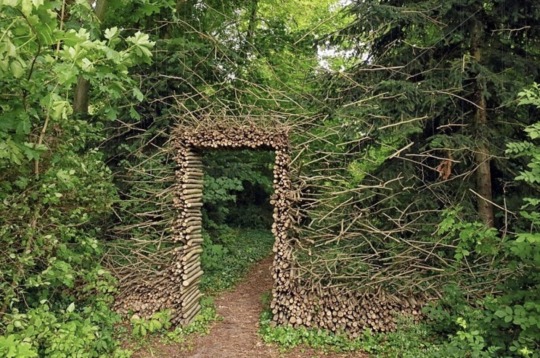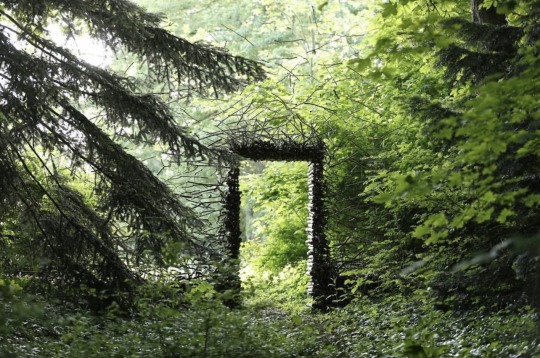Text
i used to consider myself a "nester" and could really intuitively create a living space that felt homely and safe and beautiful, but i've realised that since leaving my last uni house i've been in such a state of transience that i've lost touch with my ability to really settle in and trust that a space is my home for more than a few months. and now that i have found a place that will be my home for a longer period, i've really struggled to feel grounded enough to create my living space and convince my body that i can relax here and invest time & energy into making my bedroom and home feel like somewhere i actually live rather than somewhere i'm staying temporarily. it's getting better and i'm nearly there but i moved in in April and there's still stuff in cardboard boxes in my room that i haven't found homes for. and i'm aware that i'm being extra messy in the communal spaces because i'm not sure where any of my stuff lives. my external living space has always been a big way that i reflect and make sense of myself internally and that has been chaotic to say the least for the past two years so maybe i can be a little more forgiving to myself and let it take the time it takes, and let it be different because i am different.
1 note
·
View note
Text

“Incoming Tide,” reduction linocut, 2024. By William Hays
24 notes
·
View notes
Text
sorry for the delay in responding to your message. I was walking around the house with unclear intentions
154K notes
·
View notes
Text
“Self-consciousness is the enemy of all art, be it acting, writing, painting, or living itself, which is the greatest art of all.”
— Ray Bradbury
2K notes
·
View notes
Photo
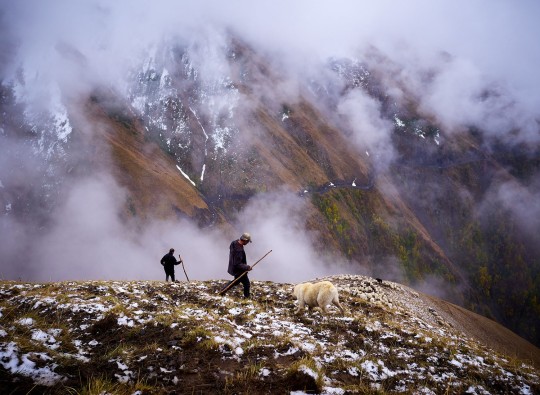
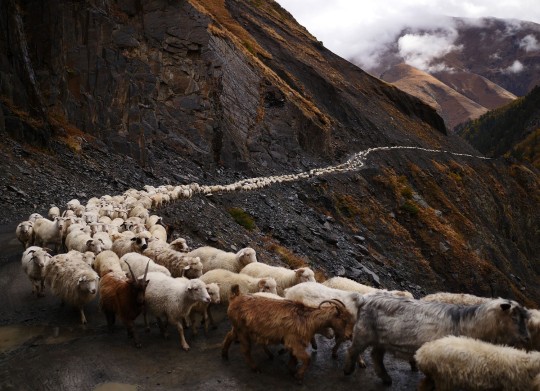
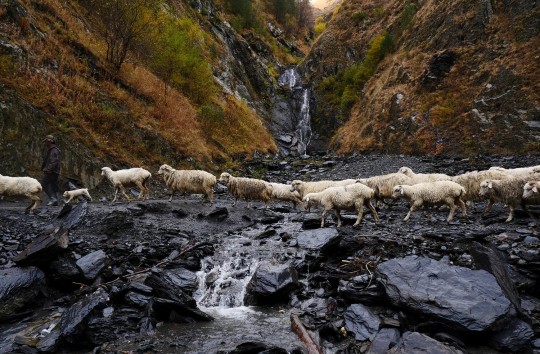

The climb to Abano Pass, in Georgia is regarded as one of the most dangerous on Earth. Every autumn, a spectacular animal migration takes place in Georgia’s Tusheti region in the northern Caucasus Mountains. Radio Free Europe photographer Amos Chapple recently joined a group of shepherds and their dogs on what he refers to as a “deadly, boozy journey” from the steep mountains to the plains, as they brought their 1,200 sheep down to their winter pastures. Amos Chapple
7K notes
·
View notes
Text
446 notes
·
View notes
Text
Words make worlds. In English, we 'it' rivers, trees, mountains, oceans, birds and animals: a mode of address that reduces them to the status of stuff, and distinguishes them from human persons...I prefer to speak of rivers who flow and forests who grow. In English, we speak of a river in the singular. But 'river' is one of the great group nouns, containing multitudes. In English, there is no verb 'to river'. But what could be more of a verb than a river?
Robert Macfarlane, Is A River Alive?
49 notes
·
View notes
Text
Leaves and Blossoms Along the Way
by Mary Oliver
If you’re John Muir you want trees to live among. If you’re Emily, a garden will do. Try to find the right place for yourself. If you can’t find it, at least dream of it.
When one is alone and lonely, the body gladly lingers in the wind or the rain, or splashes into the cold river, or pushes through the ice-crusted snow. Anything that touches.
God, or the gods, are invisible, quite understandable. But holiness is visible, entirely.
Some words will never leave God’s mouth, no matter how hard you listen.
In all the works of Beethoven, you will not find a single lie.
All important ideas must include the trees, the mountains, and the rivers.
To understand many things you must reach out of your own condition.
For how many years did I wander slowly through the forest. What wonder and glory I would have missed had I ever been in a hurry!
Beauty can both shout and whisper, and still it explains nothing.
The point is, you’re you, and that’s for keeps.
339 notes
·
View notes
Photo
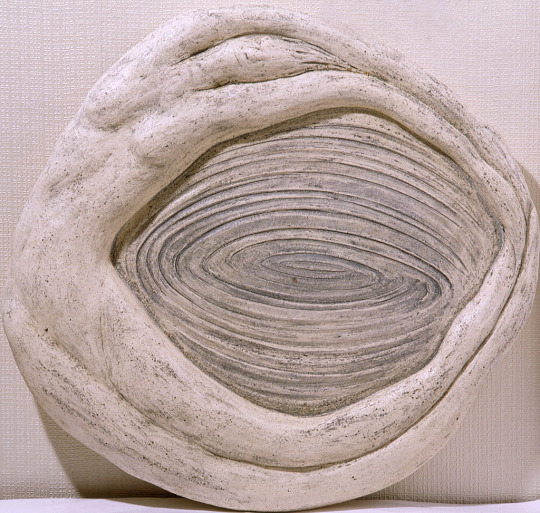
Hahn Ai Kyu (한애규) - 물과 여인 [Water and woman], 1993
4K notes
·
View notes
Text

[ ☜ left ] arteries, from Diderot and d’Alembert’s Encyclopédie, 1751-1772
[ right ☞ ] Saymaluu-Tash national park petroglyphs, Kyrgyzstan
5K notes
·
View notes


